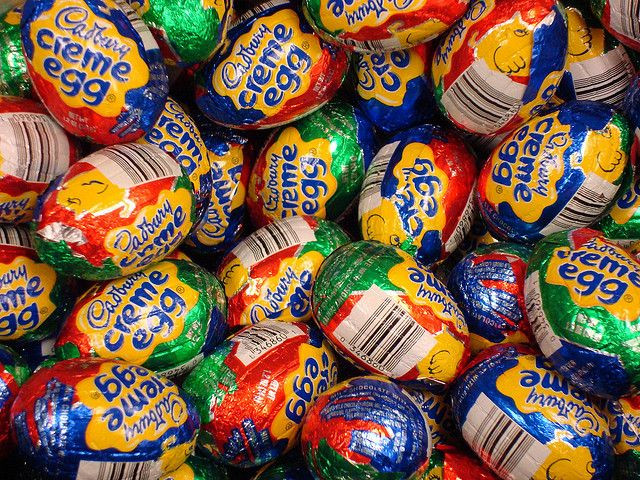Eating Junk Food May Be A Matter Of Permission, Not Crumbling Will Power

No, unfortunately, we are not pillars of will power. When you put plates of chocolate cake in front of us, we might weigh the pros and cons on a balance — moisture and decadence versus the inevitable self-loathing — but, most of the time, we rely on context clues to make our decisions.
New research from Hong Kong University of Science and Technology suggests the choice to indulge in junk food is often a result of whether our dining companions give us permission. Whether it’s through the forceful C’mon, just eat it or the subtle Just one bite, our social groups wield a great deal of influence in how we keep our diets. Fortunately, we may be able to use the phenomenon to our advantage.
A lot of people may bristle at the idea they aren’t in total control of their food choices. “Most of us don't like being forced to do things,” write co-authors Fangyuan Chen and Jaideep Sengupta. “The freedom to make our own decisions generally energizes us and increases our sense of well-being.”
But, in another sense, the freedom to make the choices we know are against the rules can be exhilarating. Chen and Sengupta found in one experiment that people’s feelings of guilt, vitality, and creativity after reading a book depended on whether they could choose the book or it was assigned to them. When people were assigned to read an entertaining book, they felt none of the guilt that people who rejected an educational book over an entertaining one experienced. It was the loss of control that helped them get over their guilty feelings.
For the determined dieter, this poses something of a dilemma. If keeping ourselves accountable isn’t one of the supreme forces guiding healthy eating, are we destined to choose between a life of mindless snacking and walled-off dieting? Probably not, but there are some caveats to consider.
Rather than lament the loss of dietary control that comes with socializing, people should feel empowered to reclaim it. Healthy eating is a shining example of a practice that can only get better through awareness. For example, unless you realize the candy bowl you pass by each day compels you to eat more candy, whether you’re hungry or not, you’ll never substitute the candy for clementines, or some other healthier snack.
Self-control also breeds self-control. Like a bicep that grows through use, our sense of will power can be beefed up the more we exercise it. In one 2008 study, people who were given the opportunity to rely on their own sense of self-control in resisting the temptation to snack were more likely to extend that self-control to a subsequent task of concentration. Avoiding unhealthy snacking, then, isn’t always a matter of overcoming huge social influences. It may simply be a call to remember past circumstances that were similar.
The researchers’ second experiment offers an example. People who were given the choice between chocolate cake and baby carrots felt more guilty about choosing the cake than people in the other condition who were instructed to take the cake. On its face this may seem like a bad thing. After all, people presumably feel bad about giving into vices; shouldn’t surrendering control lead to even worse feelings?
It turns out the opposite happened. The people who were told to eat the cake did significantly better on a follow-up concentration task — deemed a measure of high self-control by the researchers — than people who elected to eat the cake over the carrots. Why? “Consistent with the premise that vitality enhances regulatory resources, we find that enhanced vitality in the vice/low-autonomy case improves self-control,” the researchers write.
In other words, you get what you want with none of the costs of feeling guilty, which ultimately makes you feel better. But exercise caution: Indulge in your devilish side too often and the decision to snack may become self-motivated, and suddenly you’re the one goading the people next to you to C’mon, just eat it.
Source: Chen F, Sengupta J. Forced to Be Bad: The Positive Impact of Low-Autonomy Vice Consumption on Consumer Vitality. Journal of Consumer Research. 2014.



























